
the odyssey of empathy
« The great gift of human beings is that we have
the power of empathy. »
Meryl Streep
2 children die in France every day
as a result of domestic violence.
his is more than 700 children a year. If man is born “good”,
how has it come to this?
Devastated by the gravity of this question,
Michel Meignant and Mário Viana
set off with their camera on a global journey seeking to understand the initiation and propagation of corporal punishment.
This is their story.

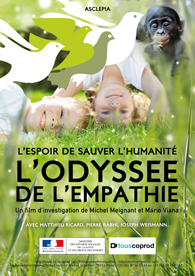 Should we really call into question the devastating consequences of human activity on climate stability? Preventing an increase in the greenhouse effect is above all an act of solidarity and empathy, empathy towards our own generation, future generations, the animal kingdom and the environment.
Should we really call into question the devastating consequences of human activity on climate stability? Preventing an increase in the greenhouse effect is above all an act of solidarity and empathy, empathy towards our own generation, future generations, the animal kingdom and the environment.
Can we change the violent world in which we live and save our planet from the effects of global warming?
By bringing our children up in a caring environment, they will become altruistic adults capable of eradicating violence throughout the world and protecting the environment for the sake of humanity.
“The Odyssey of Empathy” demonstrates that this is possible. Human origins Matthieu Ricard’s kindness, Kalahari bushmen, Pierre Rabhi, the Farmer-Philosopher and the latest neuroscientific discoveries all prove that a happy and violence-free childhood are the natural foundations of empathy.
By bringing our children up in a caring environment, they become respectful citizens and environmentally aware adults.
With the participation of :
Ministry of Social Affairs, Health and Women's Rights,
Delegation for Information and Communication (DICOM),
La Fondation de la Vocation, Les Parents d'Amour, Ni claques ni fessées,
Observatory of Ordinary Educational Violence (OVEO),
Réseau Hommes Rhône-Alpes (RHRA), Action EMDR contre le Trauma (AET)
An investigative documentary by Michel Meignant and Mario Viana
Running time 1 h 45
French version
Asclepia © 2015
Crew film
- Michel MEIGNANT - Writers-Directors
- Mário VIANA - Writers-Directors
- Jean-Michel GODE - Executive Producer
- Mário VIANA - Chief Editor
- Laure MANN - Production Assistant
- Jean-Christophe BARRAS - Sound-Engineer
- Cécile MEIGNANT - Infographics
- Claire CHANCE - Artistic Assistant
- Jérôme VALIDIRE - Calibration
- Hélène CHARTIER - Détection
- Emile LEROY - Dubbing
- François VERGEZAC - Promotion
- François BILLER - IT documentation
- Birthe GLUUD - IT documentation
- Michel PELLETIER - Treasurer « Les Parents d’Amour »
- Rui GOMES - Technical Assistance
The music of the film
El sistema - Simon Bolivar youth orchestra
Beethoven's Ode to Joy
Pachelbel's cannon

In order of appearance :
We'd like to thank everyone we've met who has shared their stories with us.
"Empathy Odyssey" would not be the film it is today without their contributions.
You can find them in the Other shoots section.
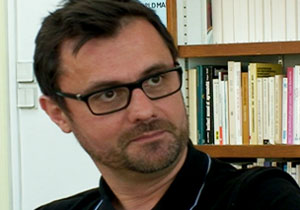 Arnaud Dehoo
Arnaud Dehoo
The Head of Childcare at Lambersart Créateur, responsible for anti-violence interactive media and founder of «Bougeothèque de Lambersart» (movement sessions with toddlers).Author of: « Porter un regard bien-traitant sur l’enfant et sur soi: Sois sage, obéis !» Éditions Chronique
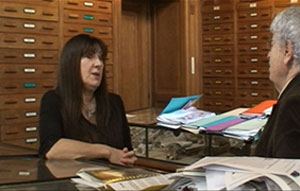 Marylène Patou-Mathis
Marylène Patou-Mathis
Marylène Patou-Mathis, a Pre-Historian from The Museum of Natural History in Paris and winner of the Marcel Bleustein-Blanchet Foundation prize from whom she secured a grant to make her 1988 film about Bushmen : « Le crépuscule des Bochimans ». Author of : « Une mort annoncée. A la rencontre des bushmen, derniers chasseurs-cueilleurs du Kalahari ». Éditions Perrin.
Marylène Patou-Mathis, demonstrates that in pre-historic times, people lived peaceful lives. When visiting primitive Bushman tribes in Namibia it became clear that the children were raised with compassion and respect for the environment.
Bushmen
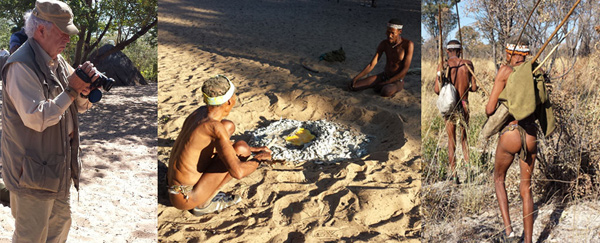
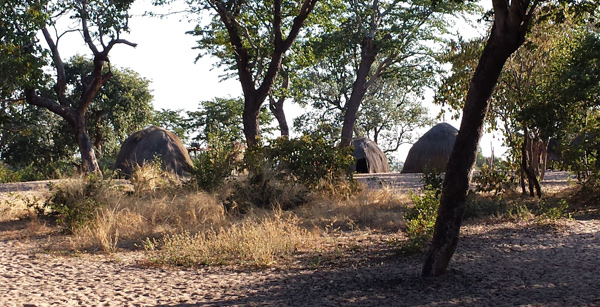
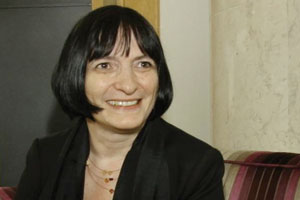 Muriel Salmona
Muriel Salmona
As a Psychiatrist specialising in psychotraumatology and victimology, she maintains that the prohibition of corporal punishment should not only be a basic human right but a public order issue!
« This type of seemingly commonplace abuse begins from the moment a parent leaves a crying baby alone unconsoled in the dark. This can develop into slaps, smacks, shouting and humiliation towards the child – supposedly for the child’s “benefit”. Gradually however, this commonplace violence becomes the foundation of multiple anxieties within the child, the teenager and then the adult, who grows to believe that he or she should either be violent or subject to violence. The cycle of violence has thus been set in motion … it will eventually destroy humanity. »
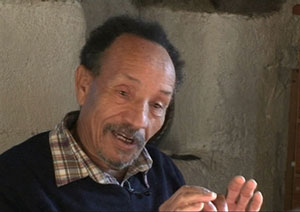 Pierre Rabhi
Pierre Rabhi
An Essayist, Farmer and Philosopher who makest the link between interpersonal empathy and environmental empathy.
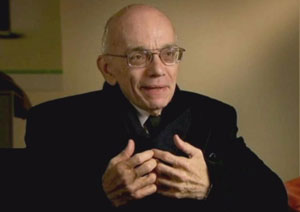 José Antonio Abreu
José Antonio Abreu
In 1975, the Economist and Musician, José Antonio Abreu founded « Social Action for Music” in Venezuela. The El Sistema Programme is known for saving young people from extreme poverty and from its inevitable consequences (delinquency, drug addiction etc.)
« Initially, art was created by a minority for a minority. Then it became art by a minority for the majority. We are now entering an age where art is created by the majority for the majority. »
« Everything that is good, commendable and noble must be replicable, otherwise it would not be truly good and noble. Therefore, what is good for one empoverished child must be so for all empoverished children. »
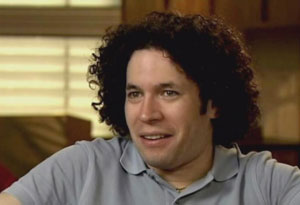 Gustavo Dudamel
Gustavo Dudamel
As a young, elightened participant of one of El Sistema’s programmes, Gustavo Dudamel, venezuelien, went on to direct Simón Bolívar’s Youth Symphony Orchestra in 1999. He has since become Musical Director of his own orchestra and was later appointed Director of the Los Angeles Philharmonic Orchestra.
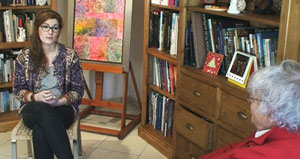 Marion Cuerq
Marion Cuerq
Marion Cuerq left France at the age of 18 to follow her childhood dream of living in Sweden. She produced the film « If I’d known, I’d have been born in Sweden», where she shows how important the opinions of children are and how advantageous it is to grow up in the country of her dreams.
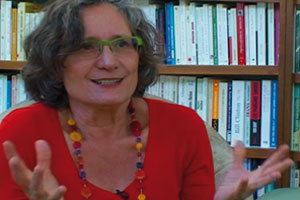 Isabelle Filliozat
Isabelle Filliozat
Psychotherapist and Director of the School of Interpersonal and Emotional Intelligence at EIREM, Aix en Provence
Author of « Il me cherche - comprendre ce qui se passe dans sont cerveaux entre 6 et 11 ans ». Éditions JC Lattès
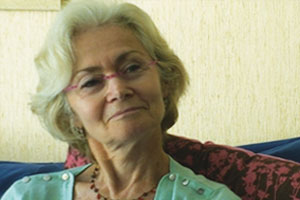 Catherine Gueguen
Catherine Gueguen
A Pediatrician, she explains the impact of trauma on the cereberal development of children and how this can be cured with nurture and love.
Children raised without smacking, shouting and humiliation experience greater neuronal growth than badly treated children.
Author of « Pour une enfance heureuse – Repenser l’éducation à la lumière des dernières découvertes sur le cerveau ». Éditions Robert Laffont.
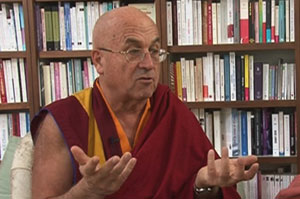 Matthieu Ricard
Matthieu Ricard
A writer, Buddhist Monk and Doctor in cellular genetics, he claims that through altruism, people are “super-cooperators”.
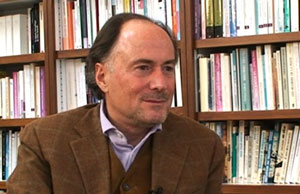 Thomas D'Ansembourg
Thomas D'Ansembourg
A Psychotherapist and University Lecturer teaches an approach he refers to as « Non violent conscious processes ». « Violence is not in our nature, it is the expression of a violation of our nature. »
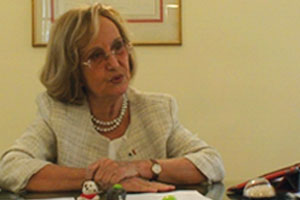 Edwige Antier
Edwige Antier
This Paediatrician approached the French Parliament with a proposal to outlaw corporal punishment.
She frequently witnesses its negative impact and passionately campaigns for this to stop.
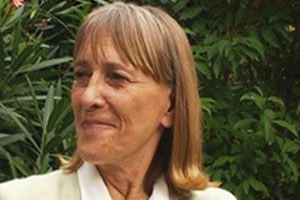 Jacqueline Cornet
Jacqueline Cornet
She founded the charity « Don’t slap, Don’t smack » which campaigns for a law to change the behaviour of both teachers and parents.
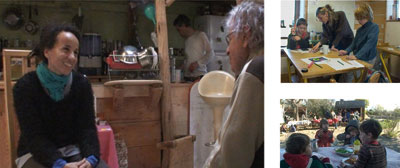 Sophie Rabhi Bouquet
Sophie Rabhi Bouquet
A teacher who founded the charity “la Ferme des Enfants” (The children’s farm), an innovative school in which children flourish freely. She shares her thoughts and observations on grade and sanction-free education.
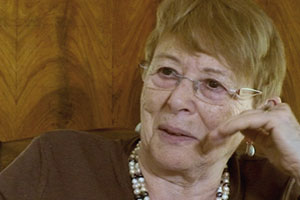 Nadine Arie
Nadine Arie
Retired Doctor, volunteer at SOS friendship.
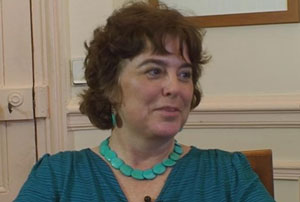 Cornelia Gauthier
Cornelia Gauthier
Psychotherapist specialising in the effects of corporal punishment. Author of
« Victime ? Non, merci ! : Sortir du cercle infernal » Éditions Jouvence.
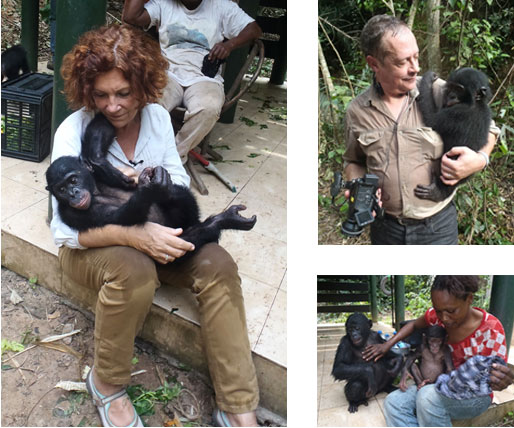 Claudine Andre and Bonobos
Claudine Andre and Bonobos
Humans are descendants of a common ancestor seven million years ago. This species gave us gorillas, orangutans, chimpanzees and ourselves. Certain violent chimpanzees evolved into gentle bonobos, orphaned when their mothers were killed by hunters. Today, Claudine André saves Bonobos by giving them intensive mothering in her sanctuary « Lola Ya Bonobos » (Bonobos Paradise) in Congo Kinshasa
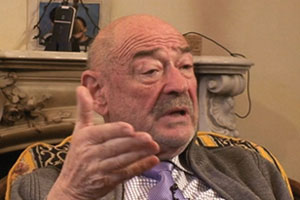 Joseph WEISMANN
Joseph WEISMANN
Joseph Weismann is at the centre of our study. He is one of the rare escapees from the Vel’ d’Hiv Roundup as well as from the Nazi transit camp in Beaune-la-Rolande, where he was cruelly separated first from his father, then his mother. He tells us how he was saved by two policemen with a fellow escapee. He campaigns against violence via accounts of his own experience.
Author of « Après la rafle ». Éditions Michel Lafon.
Additional footage
We would like to thank all those we have met with and have shared their experiences with us.
The Odyssey of Empathy would not be the film it is today without their contribution.
- Pascal Picq – Paleoanthropology - Collège de France
- Vanessa Woods – Primatology - North Carolina - USA
- Brian Hare - Primatologt - North Carolina - USA
- David Dutartre - Familylab - The laboratory familie
- Michel Odent - Surgeon and obstetrician - Writer
- Catherine Dumonteuil-Kremer - Chief Editor PEPS
- Cassiopee Athlan -Oriental Language student
- Les Sans - Réserve of Nyae Nyae Conservacy - Namibia
- Le guide Kaeste Gcao du village de Nhoma - Namibia
- Leon Tsamkgao – Son of the Village Chief – Tsumkwe - Namibia
- Arno Oosthuysen - Nhoma Safari Camp - Namibia
- Sylvie Téveny - Ethnologist specialising in the Inuit world
- Véronique Gaspard - C N V - Non Violent Communication
- Isabelle Desplat - Ecological farmer - CNV
- Redouane Saloun - Ecological farmer - CNV
- Jeremy Rifkin - Writer prospectiviste - USA
- Guy Corneau - Jungian Psychoanalyst - writer - Canada
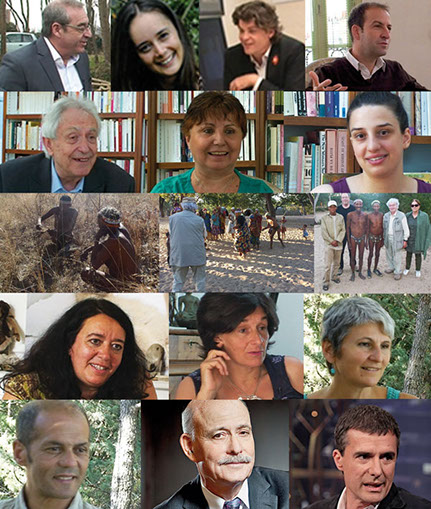

2 children die in France every day as a result of domestic violence. This is more than 700 children a year. If man is born “good”, how has it come to this?
Devastated by the gravity of this question, Michel Meignant and Mário Viana set off with their camera on a global journey seeking to understand the initiation and propagation of corporal punishment.
This is their story.
Human nature is inherently good
Research by Alice Miller, and more recently Olivier Maurel, supports the theory that human nature is good and that man is not born predisposed to violence or corruption.
The struggle against corporal punishment
Nowadays the practice of “educational” measures, such as smacking, threatening, screaming and denigration are all too often dismissed as harmless and commonplace and in some instances is positively encouraged. Such behaviour is known as “Corporal Punishment”. It is possible to provide a non-violent and caring upbringing, this is called “Positive Parenting”.
To protect our capacity for affection and empathy
Neuroscientific studies have proven that smacking and humiliating children have a negative impact on the development of their brain, especially on their capacity to recognise and feel the emotions of others and to develop lifelong harmonious relationships.
A worthwhile cause for the future of humanity
Given that corporal punishment has a propensity to lead to future violent behaviour, development of positive parenting plays a strong role in its prevention.
Les parents d'amour
Violence hasn't always existed
by Luc Ulmi
LE TEMPS - Genève
samedi 24 janvier 2015
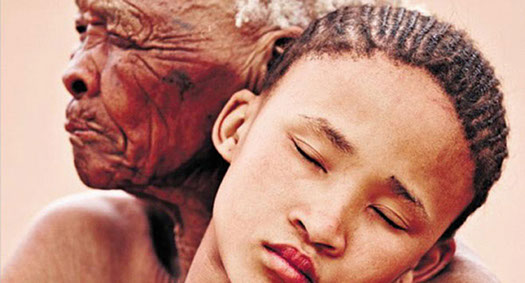
According to this Namibian Bochiman Grand-Mother and Grand-Daughter. « There is no such thing as Corporal Punishment where they come from, smacking, or slapping, they just don’t exist. » (Getty images)
In the film « The Odyssey of Empathy », both scientists and empathy campaigners come together for an ambitious but simple project: to demonstrate how brutality is not inherent in the human psyche and that change is possible.
There was a time when violence did not exist, this theory is not based on a dream, a fairy-tale or philosophical speculation, more and more commonly, it is expounded by the sciences that study the brain and our psyche, such as anthropology and the biology of evolution. Recent studies show that today’s society of violence and competition can easily be substituted with one of empathy and cooperation. Today’s knowledge of humankind shows how it is possible to imagine a world without mass genocide, war and brutality, a world where none of these events would be commonplace. So, accompanied by a Doctor, a Psychotherapist and a Cinematographer, Michel Meignant, set out to explore these notions and produced this documentary.
A crowdfunding exercise has been put into place in order to complete their mission (see below).
Here follows an interview with two contributors.
Peace in prehistoric times
Violent death inflicted by one human-being onto another first occurred quite late on in the history of humanity and remained rare for quite some time. This is borne out by archaeological evidence. Marylène Patou-Mathis, prehistorian and Research Director of the CNRS (French national research centre) wrote a book on the subject in 2013: War in Prehistory (Published by Editions Odile Jacob). « I was irritated at constantly hearing the same thing – we are violent, it is human nature, it has always been like this –these claims that have no foundation. The scientist in me decided to look for some evidence. As a result, I found that even though violence was rare in Palaeolithic times, it did occur in some circumstances. The first evidence can be found in cannibalism. Whilst this could be a funeral rite, it could also be a ritual whereby a human is sacrificed and subsequently eaten in order to unite a group of people. It could be said that during a cannibalistic meal, everyone takes responsibility for a part of the fatal act. What lead these people to make such a sacrifice was perhaps a reaction to a problem such as a major catastrophe like an epidemic or a famine. They would end up sacrificing something precious, like a member of the group. »
Another common misconception is that primitive violence was always a consequence of one person wanting another’s resources or of some other disagreement. « Another common fantasy is that violence is always started by someone trying to take someone else’s possessions. There are several myths of this kind in circulation, they have absolutely no archaeological or anthropological substantiation. Violence towards women, for example, is nothing more than a 19th century myth.
We’re not being idealistic here, and we are not from some a parallel universe. We are perfectly grounded in these observations.
« One must not confuse violence with aggression. Aggression is an animalistic reflex, a survival instinct. It’s a defence mechanism, linked to our predatory ancestors. « Hunter-Gatherers kill animals to live. They too have their rituals, before, during and after a hunt. Every group of hunters has its ritual. »
« They need these rituals in order to kill this person they know, who is as close to them as a sibling – this sibling becomes their prey ».
The absence of violence doesn’t mean that there is no conflict though: « Ethnographic evidence collected from traditional tribes such as the Bochimans, or the San tribe, from Southern Africa, (with whom I had the pleasure to live for a while) live with very little violence. When there is an argument, everybody gets together to find a solution. If a solution cannot be found, there is a split and one party leaves with one of the protagonists. »
« So, can we trace prehistoric empathy through archaeology? Yes we can. We can see it in skeletons where they have sustained crippling wounds and congenital malformations. A number of cases have been found, including a Neanderthal found in Shanidar in Irak who had managed to live without a fore-arm for over 40 years. This proves that his people looked after him, didn’t reject him or abandon him to die » What do we know about prehistoric attitudes towards children? « We don’t have the archaeological wherewithal to understand how Paleolithic children were educated, but when we look at modern hunter-gatherer tribes behave, it is clear that there is no corporal punishment. Smacking and spanking do not exist. »
We also ask ourselves, how it came to be that humanity changed from being peaceful to being violent. « We believe that once people become sedentary, demographics rise. This brings about economic change, the domestication of plants and animals, stocks rise, people have more possessions, and this is even reflected in cave paintings where the elite are depicted as bigger than the others. Without meaning to sound like Rousseau, allow me to draw your attention to these facts » Is there any such thing as a sedentary tribe with no violence? « Yes, so-called small Horticultural societies. The number of members is what counts. »
« Moderate » brutality in education.
There are two types of violence towards children both of which are passed on from generation to generation inflicting a mixture of personal and social harm. Doctor and Psychotherapist, Cornelia Gauthier from Genova, penned several books on the subject. (Have we all been abused? Published by Georg and « Be a Victim? No thanks! Published by Jouvence), she set out to write extensively about these two types of violence, paying particular attention to most mundane: «Abuse is the act of people who were once abused themselves. Most people have inflicted some kind of Corporal Punishment, even without realising it, thinking they are doing the right thing and that it’s for the child’s own good. » Those seemingly benign threats, the shouting, the smacks, slaps and ignored crying – supposedly all for the benefit of the child, is actually « The foundation of all violence ». By chipping away at a child’s capacity for empathy in this way, the seeds will have been sown for the violent adult of the future. Violence thus becomes hereditary. « It’s a language learnt from a very early age, as children learn through imitation. « The way a child is brought up becomes, for him, the norm and good in his eyes. »
Some might well suggest that by removing this type of ‘gentle violence from a child’s education is going to produce a spoilt brat! « We need to move away from this preconceived notion! Nobody is going to let their child run wild, they need limits! In fact, that’s exactly what they are looking for. This is one of the greatest misunderstandings between adults and children. Let’s just take a closer look at this. « The adult imposes a limit, the child feels secure, and the child will then test this limit to see if it really exists. So, when we say to a child « You mustn’t do that », you know full well that the child is going to do it. Then, the adult gets cross and irritated as he feels like he is being disobeyed, when in fact, the child is just looking for confirmation. « So what should we do? » We need to repeat: « No, don’t do that», without threats, calmly and firmly. This will have a soothing effect on the child, even if he is frustrated, he will grow up without the emotional baggage generated by Corporal Punishment. »
Another classical preconception happens when « You say to a 2 year old child: « No! Don’t touch the remote control. » The child hears the words « remote control », his little brain takes the information on board, but he is not yet neurologically mature enough to link the image with the command not to touch it. So what does he do? He goes to touch it, slowly, whilst looking us straight in the eye! He is not being disobedient, he’s just checking. »
Following on from Olivier Maurel (see below), Cornelia Gauthier believes that Corporal Punishment came to be in the wake of settlements. « The number of births rise in ‘hunter-gatherer » communities, the consequences are such that the older children are severed early in order to make way for their siblings to be breast-fed. This must have made the older siblings aggressive, who in turn, started to smack their younger brothers and sisters. The natural reaction of the mother is to then smack the older sibling as her breast-feeding hormones make her hyper-aggressive if anyone comes near her new-born baby... This makes a totally plausible case for violence within the family circle.
Hearing of France before the United Nations Commission on the Rights of the Child
Geneva, January 14, 2016
France's response to ordinary educational violence
by Laurence Rossignol
… nder the age of 15 is a first aggravating circumstance. When the violence is committed within an educational establishment, this is a second aggravating circumstance. When the perpetrator is an ascendant of the victim, this is another aggravating circumstance. It should also be remembered that negligence is also a criminal offence. It should also be remembered that in establishments catering for minors, as well as in schools, several prefectoral or ministerial circulars have specified that violence and corporal punishment or humiliating treatment are strictly forbidden, and have led these establishments to set up violence prevention plans, since violence can be perpetrated both by supervising adults and by minors themselves within these establishments. But I know that by giving these details, I'm certainly not answering the question that was asked. The question can be summed up quite simply: Is France ready to pass a law banning corporal punishment?
Two types of answer: one concerning the civil code, the other concerning the penal code. As far as the civil code is concerned, article L 371 -1 of the civil code is one of those articles that every couple who marries is familiar with, since it is set out when the marriage is pronounced. This article specifies that parental authority has the child's best interests at heart, and is exercised with due respect for the child's person. For my part, I believe that the Civil Code provides the basis for rejecting corporal punishment and promoting education in the interests of the child, without violence committed in the name of parental authority. I also believe that corporal punishment is not in the best interests of children, nor does it contribute to their respect. I also believe that corporal punishment does not fall within the scope of educational freedom.
Having said that, the next question is: Should there be a penal law? In other words, a law that would be accompanied by sanctions against the perpetrators, since there can be no penal law without sanctions. And today, in France, we're having a rather difficult debate on this subject. Public opinion is overwhelmingly, overwhelmingly hostile to any legislative intervention in this area - and when I say overwhelmingly, I mean between 70 and 80 percent of public opinion is hostile - and considers that the State has no business meddling in the lives of families. It also considers that there is a very big difference between a slap given by an exasperated parent and violence endangering a child, and that this difference is also part of the difficulty of being a parent. The choice I've made in this tense context of family issues, those who have followed what has happened in France over the last three years will have noticed that all these subjects are extremely sensitive and give rise to extremely reactionary expressions and mobilizations around questions of authority.
he choice I've made, in my position, is to promote violence-free education, and I believe that laws that help society to evolve must also be supported to some extent by society. So we're at the stage where we're working with opinion leaders, associations and a number of pediatricians and psychologists committed to this issue. We are campaigning today to change public opinion, firstly in its own consciousness, and secondly in its relationship with the law on this subject. Because we don't legislate in the same way on all subjects, and without being subject to opinion and without being subject only to following opinion. To take a probably excessive comparison, when France decided to abolish the death penalty in 1980, opinion was not 100% in agreement with the law. After that, it was up to the state to apply the law it had passed. As far as corporal punishment is concerned, it's a law that we then ask families to apply and adopt. And for this law to be implemented and adopted, it is first necessary to change public opinion. That's what I've set out to do, with the support of a number of activists in this cause, whose commitment to this issue I salute.
The amendment against spanking
was censured by the Constitutional Council
on January 16, 2017
On Thursday, the French Constitutional Council censured several provisions of the "equality and citizenship" law, the last major piece of legislation of the Hollande quinquennium.
This was the last major law of the Hollande quinquennium, often described as the "broom law" because it brought together so many measures that had no place in other pieces of legislation. On Thursday January 26, the French Constitutional Council censured several provisions of the bill, some on the substance, some on the form, deeming that the measures in question had no place in the law.
This was the case for article 222 of the "equality and citizenship" bill, which introduced a ban on the use of "corporal violence" against children into the definition of parental authority. This parliamentary amendment, which symbolically outlawed slapping and spanking, had been passed with the tacit agreement of the government. It was considered a legislative "cavalier", i.e. unrelated to the main purpose of the law. The matter was referred to the Constitutional Council by sixty opposition senators.
According to the amendment's authors, deputies Marie-Anne Chapdelaine (Parti socialiste, PS, Ille-et-Vilaine), Edith Gueugneau (divers gauche, Saône-et-Loire), and François-Michel Lambert (écologiste, Bouches-du-Rhône), the provision, which was included in the Civil Code, did not carry any penalties, but was intended for educational purposes. They had previously tabled an unsuccessful bill on the subject.
After the National Assembly vote, Laurence Rossignol, the French Minister for Families, Children and Women's Rights, hailed the new wording of the Civil Code, which "amplifies the work of conviction that [she] is carrying out, with associations, in favor of non-violent education", as well as an "indispensable tool for the prevention of child abuse".
Reacting to the censorship, the Minister expressed her "great disappointment" on Friday. "I am very shocked that right-wing MPs have referred this new article to the Constitutional Council (...). From a certain point of view, they have asserted the right to hit children", she said Laurence Rossignol.
LE MONDE | 26.01.2017
The law against violence against children
was passed by the National Assembly
on December 22, 2016
It gives me great pleasure to inform you that the Law against violence against children was passed by the National Assembly on December 22, 2016.
Your commitment to this fight has thus been rewarded.
But what remains to be done in concrete terms is to implement its application.
That's what our second part of the Empathy Odyssey is all about: Les Chemins de l'Empathie.
Yours sincerely.
Michel Meignant
back to home sunny side of the doc 2023
Michel Meignant
+33 (0)6 07 76 07 64 / +33 (0)1 47 04 37 04 / michelmeignantcabinet@gmail.com
17 ter rue du Val - 92190 MEUDON

